Law and Order
Where Do Kamala Harris and Donald Trump Stand on Crypto?
Published
4 months agoon
By
admin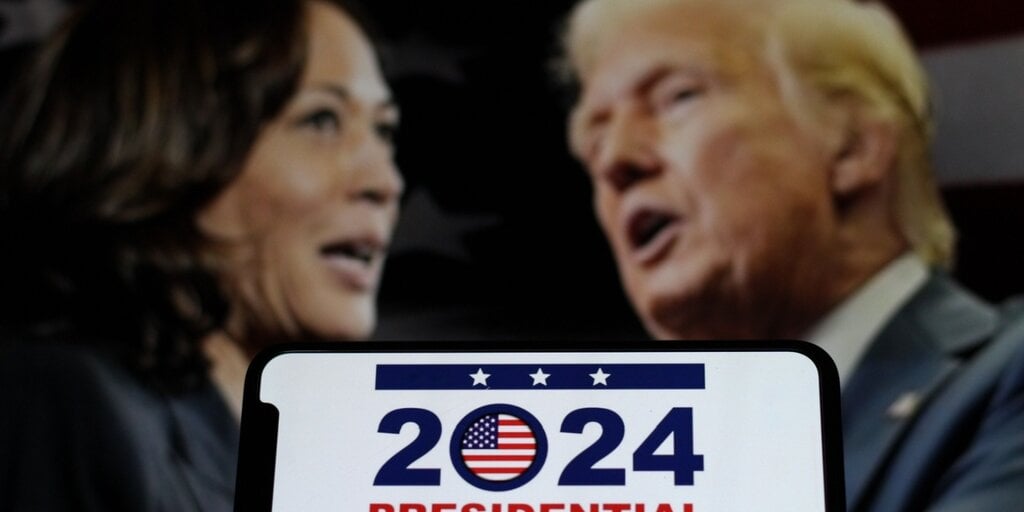
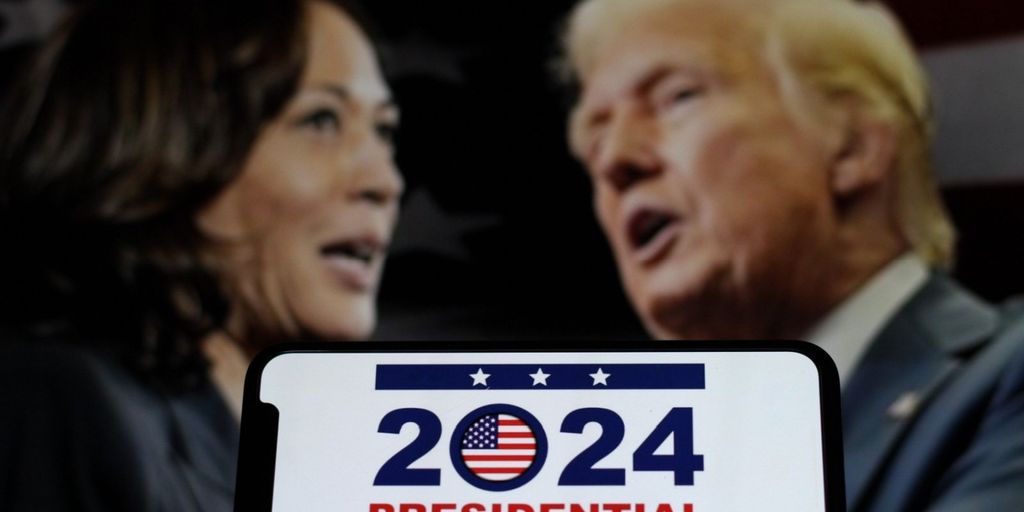
Neary 65 million Americans have already cast their votes ahead of next week’s election—and the race between the two candidates is tightening up.
Cryptocurrency has been a significant issue in the presidential race, with former president and Republican nominee Donald Trump pivoting from a skeptic to a self-proclaimed crypto candidate, while current Vice President Kamala Harris—who took over for President Joe Biden as the Democrats’ pick in July—has signaled an intent to break from the anti-crypto policies of the current administration in which she serves.
At Decrypt, we’ve been covering the ins and outs of the role of cryptocurrency in American politics throughout the entire election cycle. But with just three days left until Election Day, here’s a primer on where Trump and Harris stand on crypto, and what you might expect if either secures the win next week.
Donald Trump
Ex-President Donald Trump has been far louder than Harris on the topic of crypto.
Previously anti-Bitcoin and skeptical of the crypto space, the business and real estate mogul has taken a sharp U-turn on the topic, coming out as an advocate for the industry and picking up ample support and donations along the way.
I am not a fan of Bitcoin and other Cryptocurrencies, which are not money, and whose value is highly volatile and based on thin air. Unregulated Crypto Assets can facilitate unlawful behavior, including drug trade and other illegal activity….
— Donald J. Trump (@realDonaldTrump) July 12, 2019
Fast-forward to 2024 and Trump has released multiple sets of NFT collectibles, called for the Americanization of Bitcoin, and even has backed a decentralized finance (DeFi) project called World Liberty Financial alongside his sons. World Liberty hasn’t gotten off to a great start with prospective investors, though sources tell Decrypt that it plans to issue a stablecoin.
Like some other Republicans, Trump has railed against central bank digital currencies (CBDCs), or digital dollars—effectively government-backed cryptocurrencies that don’t yet exist in the U.S., but frighten the libertarian wing of the GOP and large parts of the digital asset space due to fears of increased government surveillance.
His promise to help Bitcoin mining—a big business formerly dominated by China, but now with a lot of American players—perfectly fits Trump’s fiery protectionist brand. As does his desire to fire crypto bogeyman Gary Gensler, the crypto-targeting U.S. Securities and Exchange Commission chairman.
Top executives in the crypto space have since backed Trump for his apparent passion for the industry, or at least his willingness to publicly engage with an industry that most politicians have avoided.
If elected to a second term, will Trump live up to his promises to protect crypto in the U.S. and advance the industry?
Kamala Harris
Democratic nominee Kamala Harris was initially quiet on the topic, and unlike Trump, certainly hasn’t been seen tossing burgers to Bitcoiners at a BTC-themed New York City bar.
But crypto is a part of the former attorney general’s agenda.
In October, Harris said she had plans for the space when a part of her “Kamala Harris Will Deliver for Black Men” platform included a commitment for specifically for the African American community.
A document for the campaign said it was for “supporting a regulatory framework for cryptocurrency and other digital assets so Black men who invest in and own these assets are protected.”
The framing proved controversial, particularly since it was arguably her most specific comments to date about crypto. But a spokesperson later clarified that such plans were intended for all Americans, and wouldn’t be limited by race.
That isn’t the only evidence that the crypto industry will fit into her presidential plans, however. Harris has said that blockchain, AI, and other emerging technologies will be innovated upon in America, and before that told donors at a fundraising event that she would encourage growth for the digital assets space in the country.
Billionaire businessman and crypto enthusiast Mark Cuban previously told Decrypt in July that the Harris campaign reached out to the former Dallas Mavericks owner with questions about digital assets. He later said the Harris camp was “far more open” to the space than the Biden administration—and he’s not the only crypto heavyweight who’s optimistic about Kamala.
Edited by Andrew Hayward
Daily Debrief Newsletter
Start every day with the top news stories right now, plus original features, a podcast, videos and more.
Source link
You may like


Wales Man Loses Appeal to Dig Out Hard Drive Holding $676 Million in Bitcoin


VanEck Files S-1 for Avalanche ETF With US SEC


Deep Dive on the Trump Reserve Token Whose Blockchain Ignores TVL
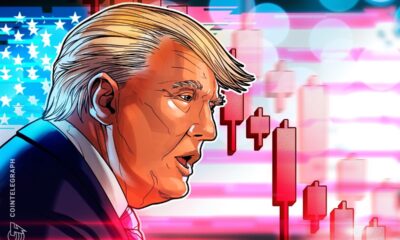

Is Trump intentionally crashing the market?


Crypto Faces Uncertainty As Trump’s ‘Short-Term Pain’ Unfolds


Kentucky Senate Passes Bill Protecting Bitcoin Self-Custody Rights
Law and Order
Wales Man Loses Appeal to Dig Out Hard Drive Holding $676 Million in Bitcoin
Published
1 hour agoon
March 14, 2025By
admin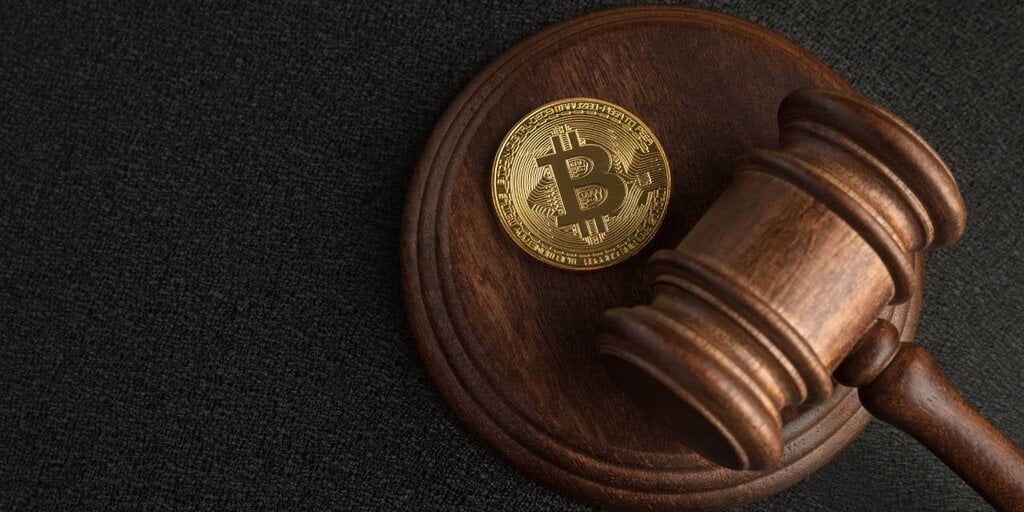

The UK Court of Appeals has rejected a Wales man’s request to excavate a landfill where he believes his hard drive holding $676 million in Bitcoin was dumped more than a decade ago.
James Howells posted Friday on Linkedin a screenshot of the appeals court’s ruling, which is final. The software engineer, who mined the lost Bitcoin in 2009, has waged a long legal battle to gain access to the landfill where he believes his tokens may be buried, and he has even considered purchasing the waste site.
But having exhausted all his options for legal recourse through the U.K. court system, Howells now plans to bring his case to the European Courts of Human Rights.
“The Great British Injustice System strikes again… Moral of the Story: The state always protects the state,” Howells wrote in his Linkedin post. “Next stop: ECHR.”
Howells lost his hard drive containing the keys to 8,000 Bitcoin in 2013, when his former partner tossed out the device. Bitcoin’s price peaked that year at roughly $1,130, CoinGecko data shows.
Since then, the value of those tossed tokens has grown astronomically, however. Bitcoin was trading at $84,500 as of publication time, or more than 7000% higher than its highest price in 2013.
Howells is one of many early Bitcoin believers whose holdings have grown to be worth a life-changing fortune. But his case also underscores a common reality for many crypto holders—the difficulties of custodying one’s own cryptocurrencies.
In a letter to Howells, Rt. Hon. Lord Justice Nugee of the U.K. Court of Appeals said he rejected the Bitcoin holder’s appeal because it did not have “any real prospect of success.”
Howells refuted the judge’s argument in a Friday statement, which he shared with Decrypt.
“The British establishment wants to sweep this under the carpet, and I will not let them,” he said. “It will not go away—no matter how long it takes!”
Although Howells implied he has a lot of time to fight his case, time to dig up his hard drive is running out.
A local council that oversees the Welsh landfill is expected to shutter the site, which is nearing maximum capacity, in the 2025-26 financial year, the council’s draft budget shows.
Daily Debrief Newsletter
Start every day with the top news stories right now, plus original features, a podcast, videos and more.
Source link
Law and Order
Vermont Drops Crypto Staking Case Against Coinbase
Published
17 hours agoon
March 14, 2025By
admin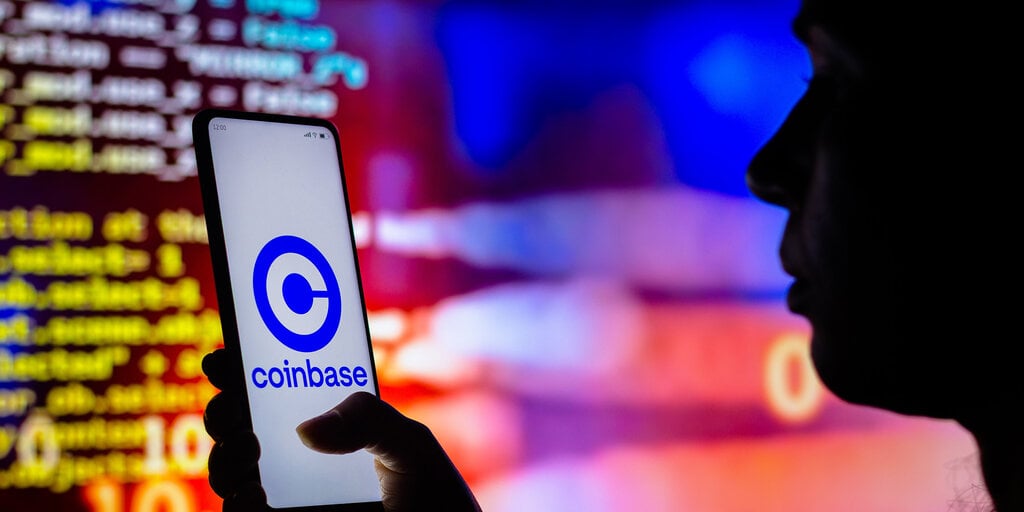

Crypto exchange Coinbase has scored another major victory in its legal battles, as U.S. state Vermont dropped its case against the exchange over its staking services.
Coinbase’s Chief Legal Officer, Paul Grewal, celebrated Vermont’s decision, calling it a sign of “progress.”
“As we have always said: staking services are not securities,” he wrote on X. “We applaud Vermont for embracing progress and providing clarity for its citizens who own digital assets.”
Grewal went on to urge other states still pursuing similar actions to “take a page from Vermont’s playbook.”
The decision follows the U.S. Securities and Exchange Commission’s (SEC) decision to dismiss its own case against Coinbase just weeks earlier, pointing to a shift in the regulatory aspects for the crypto industry under President Donald Trump’s administration.
The formation of the new SEC task force to “provide guidance for the promulgation of rules regarding the regulation of crypto products and services” was cited as a pivotal factor in Vermont’s decision to rescind its case against Coinbase.
“In light of the dismissal of the Federal Action and likelihood of new federal regulatory guidance, the Division believes it would be most efficient and in the best interests of justice to rescind the pending Show Cause Order, without prejudice,” a Thursday filing reads.
The legal troubles between Coinbase and state regulators date back to June 2023, when Vermont, along with 10 other states, issued a “show cause order” accusing the exchange of violating securities laws by offering staking services without proper registration.
The 11 states argued that Coinbase’s staking services qualified as unregistered securities, prompting legal action to halt the practice in certain jurisdictions.
A “show cause order” is a legal directive requiring a party to explain why a court should not take a specific action, in this case, halting Coinbase’s staking services.
The legal actions were launched shortly after the SEC filed its own case against Coinbase, accusing the exchange of operating as an unregistered exchange, broker, and clearing agency.
The SEC, under its new acting chair, Mark Uyeda, has adopted a more lenient stance on enforcement compared to its previous leadership under Gary Gensler.
Following the change, the SEC has dropped multiple lawsuits against crypto companies, notably Binance, Kraken, and OpenSea, among others.
Edited by Sebastian Sinclair
Daily Debrief Newsletter
Start every day with the top news stories right now, plus original features, a podcast, videos and more.
Source link
Law and Order
Trump Admin Wants to Acquire as Much Bitcoin as Possible: White House
Published
1 day agoon
March 13, 2025By
admin
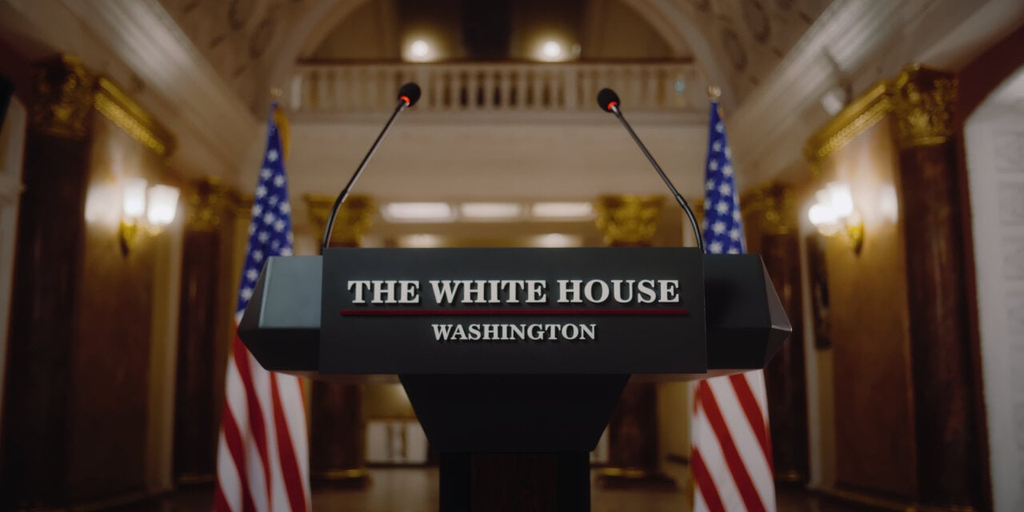
A White House official told a room of crypto industry leaders this week that the Trump administration wants to acquire as much Bitcoin as possible.
At a closed-door roundtable hosted by the Bitcoin Policy Institute on Tuesday, Bo Hines, executive director of the Presidential Working Group on Digital Assets, told participants the White House is intent on acquiring as much Bitcoin as it can, according to multiple attendees.
When asked by someone in the room exactly how much Bitcoin the U.S. government might ultimately acquire, Hines joked the question was akin to asking someone how many dollars they’d want, one roundtable attendee told Decrypt.
A White House official confirmed to Decrypt that Hines indeed made the statement about acquiring as much Bitcoin as possible, but added the caveat that any such acquisitions would be made “in a budget neutral way that doesn’t cost the taxpayers a dime.”
The private roundtable, which followed a public “Bitcoin for America” policy summit, hosted Bitcoin heavyweights, including Strategy co-founder Michael Saylor, Marathon Digital CEO Fred Thiel, Anchorage Digital CEO Nathan McCauley, and Bitcoin Magazine CEO David Bailey. It also featured three U.S. senators: Cynthia Lummis (R-WY), Bill Hagerty (R-TN), and Bernie Moreno (R-OH).
At one point during the roundtable, a participant asked Bo Hines whether the White House supports the Bitcoin Act—a piece of legislation reintroduced in the Senate by Lummis on Tuesday that would require the U.S. government buy up to one million BTC, worth roughly $80 billion, and would enshrine into law the Strategic Bitcoin Reserve established by President Donald Trump’s recent executive order.
After receiving the question, according to one roundtable attendee, Hines then turned to Lummis, whom he was sat next to, and said the White House plans to support legislation that puts a Strategic Bitcoin Reserve into law, and will apply pressure to make sure it passes Congress.
A White House official emphasized to Decrypt that Hines did not, however, endorse any specific piece of legislation during the event.
It is currently estimated the U.S. government holds nearly 200,000 BTC, acquired via civil and criminal forfeitures. Senior White House officials have pushed the line in recent days that they support the government purchasing additional Bitcoin to buttress a strategic reserve, so long as those acquisitions are “budget neutral.”
It is debatable whether Lummis’ Bitcoin Act can be considered budget neutral. The bill calls for the U.S. to purchase some $80 billion worth of BTC at current prices—but plans to do so principally by obligating the Federal Reserve to hand over revenues that would theoretically be generated if the central bank were to have its gold certificates reevaluated at market prices. The certificates were last priced in 1971, when the U.S. went off the gold standard. Gold has since increased by over 6,800% in value.
Daily Debrief Newsletter
Start every day with the top news stories right now, plus original features, a podcast, videos and more.
Source link

Wales Man Loses Appeal to Dig Out Hard Drive Holding $676 Million in Bitcoin

VanEck Files S-1 for Avalanche ETF With US SEC

Deep Dive on the Trump Reserve Token Whose Blockchain Ignores TVL

Is Trump intentionally crashing the market?

Crypto Faces Uncertainty As Trump’s ‘Short-Term Pain’ Unfolds

Kentucky Senate Passes Bill Protecting Bitcoin Self-Custody Rights

Crypto Fintech Giant MoonPay Continues Acquisition Spree With Purchase of Stablecoin Infrastructure Platform

Solana price slowly forms a rare pattern: can SOL surge 270%?

Ethereum Flat as Devs Prepare for Hooli Testnet Ahead of Pectra Upgrade

Dogecoin Price Nears Key Support as Analysts Predict Rally To $20

ZKsync Sunsets Liquidity Rewards Program, Citing Bearish Market Conditions

Why is Bitcoin price stuck?

Bitcoin Needs Weekly Close Above This Level To Confirm Market Bottom, Analyst Says

California Legislators Endorse Bitcoiner For $500 Billion Pension Board

‘There’s Every Reason To Be Cautious’: Trader Issues Alert on Bitcoin Amid Major Resistance – Here’s His Outlook

Arthur Hayes, Murad’s Prediction For Meme Coins, AI & DeFi Coins For 2025

Expert Sees Bitcoin Dipping To $50K While Bullish Signs Persist

Aptos Leverages Chainlink To Enhance Scalability and Data Access

Bitcoin Could Rally to $80,000 on the Eve of US Elections

Institutional Investors Go All In on Crypto as 57% Plan to Boost Allocations as Bull Run Heats Up, Sygnum Survey Reveals

Sonic Now ‘Golden Standard’ of Layer-2s After Scaling Transactions to 16,000+ per Second, Says Andre Cronje

Crypto’s Big Trump Gamble Is Risky

Ripple-SEC Case Ends, But These 3 Rivals Could Jump 500x

A16z-backed Espresso announces mainnet launch of core product

Has The Bitcoin Price Already Peaked?

Xmas Altcoin Rally Insights by BNM Agent I

Blockchain groups challenge new broker reporting rule

Trump’s Coin Is About As Revolutionary As OneCoin

Ripple Vs. SEC, Shiba Inu, US Elections Steal Spotlight

Is $200,000 a Realistic Bitcoin Price Target for This Cycle?
Trending

 24/7 Cryptocurrency News4 months ago
24/7 Cryptocurrency News4 months agoArthur Hayes, Murad’s Prediction For Meme Coins, AI & DeFi Coins For 2025

 Bitcoin2 months ago
Bitcoin2 months agoExpert Sees Bitcoin Dipping To $50K While Bullish Signs Persist

 24/7 Cryptocurrency News2 months ago
24/7 Cryptocurrency News2 months agoAptos Leverages Chainlink To Enhance Scalability and Data Access

 Bitcoin4 months ago
Bitcoin4 months agoBitcoin Could Rally to $80,000 on the Eve of US Elections

 Bitcoin4 months ago
Bitcoin4 months agoInstitutional Investors Go All In on Crypto as 57% Plan to Boost Allocations as Bull Run Heats Up, Sygnum Survey Reveals

 Altcoins1 month ago
Altcoins1 month agoSonic Now ‘Golden Standard’ of Layer-2s After Scaling Transactions to 16,000+ per Second, Says Andre Cronje

 Opinion4 months ago
Opinion4 months agoCrypto’s Big Trump Gamble Is Risky

 Price analysis4 months ago
Price analysis4 months agoRipple-SEC Case Ends, But These 3 Rivals Could Jump 500x


